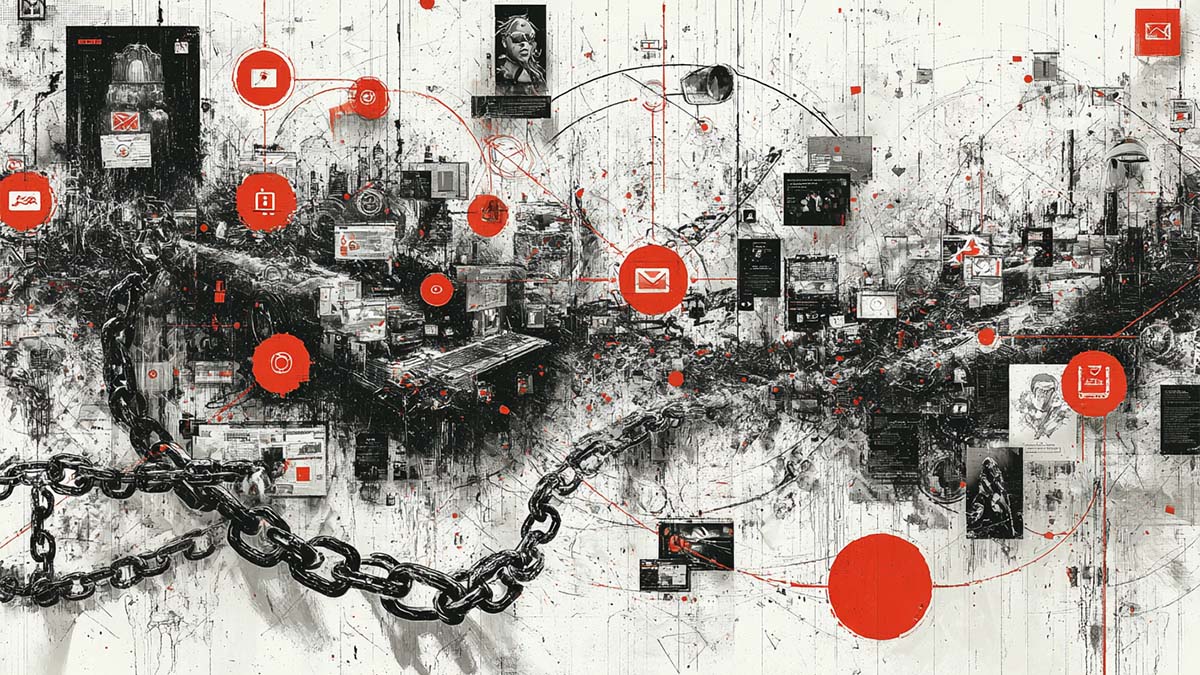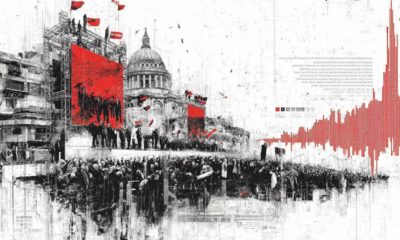Germany
Germany’s Digital Experiment: Decoding the Impact of Hate Speech Laws and Platform Regulation
In the digital age, few policy experiments have been as consequential – or as controversial – as Germany’s comprehensive approach to regulating online hate speech and platform governance.
Germany’s Network Enforcement Act (NetzDG) and subsequent implementation of the EU’s Digital Services Act (DSA) have succeeded in creating unprecedented transparency in platform operations and establishing new global standards for content moderation. However, they have also generated significant concerns about over-censorship, cultural imperialism, and the delegation of democratic authority to private corporations.
The NetzDG: A Regulatory Innovation
The Network Enforcement Act (Netzwerkdurchsetzungsgesetz), which came into force on January 1, 2018, represented a fundamental shift in regulatory approach. Rather than relying solely on criminal prosecution or voluntary platform cooperation, the law created a hybrid system that combined legal obligations with private enforcement mechanisms.
The NetzDG required social media platforms with more than 2 million users in Germany to establish effective procedures for reviewing and removing “manifestly unlawful” content within 24 hours of receiving a complaint. For more complex cases requiring legal analysis, platforms were given up to seven days to make a determination. The law covered 22 categories of illegal content under German criminal law, ranging from incitement to hatred and Holocaust denial to defamation and threats of violence.
One of the NetzDG’s most controversial features was its reliance on private platforms to make determinations about the legality of user-generated content. Critics argued that this approach effectively outsourced judicial functions to private companies, creating incentives for over-removal of content to avoid potential fines. The law’s penalty structure, which allowed for fines of up to €50 million for systematic non-compliance, was designed to ensure platform cooperation but also created strong incentives for cautious content moderation.
The NetzDG’s transparency reporting requirements provided valuable insights into platform content moderation practices, but also revealed significant disparities in how different platforms interpreted and applied German law. Meta’s transparency reports, for example, showed that the company removed hundreds of thousands of pieces of content annually under the NetzDG, but provided limited information about the accuracy of these decisions or their impact on legitimate speech.

The 2021 amendments to the NetzDG introduced several important changes, including enhanced transparency requirements, improved user notification procedures, and the establishment of authorized bodies to review complex content decisions. These amendments were designed to address some of the criticism of the original law while maintaining its core enforcement mechanisms.
The first major test of the NetzDG’s enforcement mechanisms came in July 2019, when the German Federal Office of Justice (Bundesamt für Justiz) imposed a €2 million fine on Facebook Ireland Limited for violations of the law’s transparency reporting requirements.
The fine was imposed not for Facebook’s content moderation decisions themselves, but for the company’s failure to properly comply with the NetzDG’s transparency reporting requirements. Specifically, German authorities found that Facebook’s transparency reports were inadequate in several respects: they failed to provide sufficient detail about the company’s complaint handling procedures, did not adequately explain the criteria used for content removal decisions, and lacked clear information about users’ appeal rights.
Perhaps no single case has been more influential in shaping debates about the NetzDG than the January 2018 suspension of the German satirical magazine Titanic’s Twitter account.
The controversy began when Titanic posted satirical tweets parodying anti-Muslim comments made by Beatrix von Storch, an Alternative for Germany (AfD) politician. Von Storch had posted inflammatory comments about Muslims on social media, and Titanic responded with exaggerated satirical versions of these comments designed to highlight their absurdity. However, Twitter’s content moderation systems, operating under pressure to comply with the NetzDG’s tight deadlines, flagged the satirical posts as potential hate speech and suspended the account.
The suspension lasted for over two days, during which time the incident generated significant media attention and political controversy. Critics of the NetzDG pointed to the case as evidence that the law’s tight deadlines and substantial penalties created incentives for platforms to err on the side of removal rather than risk non-compliance.
Twitter eventually reinstated the Titanic account after determining that the content was satirical in nature and protected under freedom of expression principles. However, the damage to the law’s reputation had already been done.
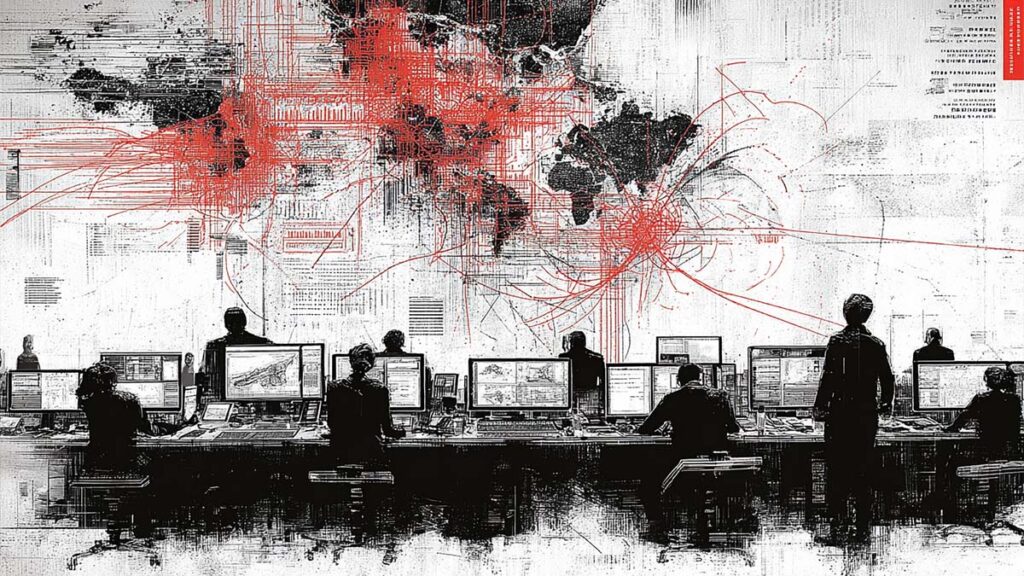
The Digital Services Act: A New Regulatory Paradigm
The European Union’s Digital Services Act represents one of the most comprehensive attempts to regulate online content and platform behavior in the democratic world. Coming into full effect in February 2024, the DSA established a new framework for governing digital services across the European Union, with particular emphasis on combating illegal content, including hate speech, disinformation, and other harmful material. The Act’s implementation in Germany through the German Digital Services Act (Digitale-Dienste-Gesetz, DDG) in May 2024 marked a significant evolution in the country’s approach to online content regulation.
The DSA operates on a tiered system of obligations, with the most stringent requirements applying to “Very Large Online Platforms” (VLOPs) and “Very Large Online Search Engines” (VLOSEs) that serve more than 45 million users in the EU. These platforms, which include major services like Facebook, Twitter/X, YouTube, and TikTok, are subject to comprehensive risk assessment requirements, external auditing, and enhanced transparency obligations. The Act requires these platforms to identify and mitigate systemic risks related to illegal content, fundamental rights violations, and threats to democratic processes.
The German implementation of the DSA through the DDG has created a robust enforcement mechanism centered on the Federal Network Agency (Bundesnetzagentur, BNetzA) as the designated Digital Services Coordinator.
The BNetzA has already established an online complaint system and begun accepting applications for “trusted flagger” status, indicating its readiness to begin active enforcement.
The trusted flagger system represents an attempt to address one of the fundamental challenges of content moderation at scale: the difficulty of making accurate determinations about complex legal and cultural questions within the tight timeframes required by law. By certifying organizations with specialized expertise in detecting specific types of illegal content—such as hate speech, terrorist content, or child sexual abuse material—the system aims to improve both the accuracy and efficiency of content moderation processes.
The trusted flagger system has been praised for its potential to democratize content moderation by involving civil society organizations in the process. However, it has also raised concerns about the potential for mission creep and the risk that trusted flaggers might develop overly broad interpretations of what constitutes illegal content.
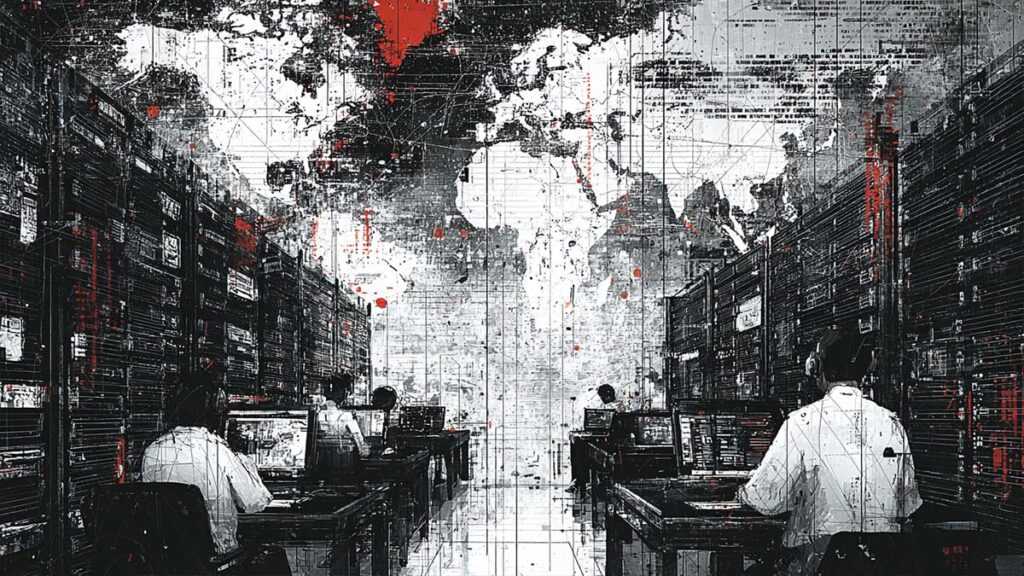
Platform Compliance and Industry Response
The implementation of Germany’s hate speech regulations has required significant adaptations by social media platforms and other online services. Major platforms have established dedicated teams for German content moderation, developed specialized reporting mechanisms, and invested heavily in automated content detection systems. However, these efforts have also revealed the inherent challenges of applying national legal standards to global platforms.
Meta’s response to German regulations illustrates both the possibilities and limitations of platform compliance efforts. The company has published detailed transparency reports showing its removal of content under German law, established appeals processes for users whose content has been removed, and worked with German authorities to develop more effective reporting mechanisms. However, the company has also faced criticism for inconsistent enforcement and has been involved in high-profile legal disputes over content removal decisions.
The case of Renate Künast, a prominent German politician who successfully sued Meta to remove fake quotes attributed to her, highlights the ongoing tensions between platform policies and German legal requirements. The landmark court ruling that Meta must remove all fake quotes attributed to Künast established an important precedent for holding platforms accountable for defamatory content, but also raised questions about the scalability of such individualized remedies.
Twitter/X’s approach under Elon Musk’s ownership has created particular challenges for German regulators. The platform’s reduced content moderation efforts and Musk’s public criticism of European speech regulations have led to increased scrutiny from German authorities. The European Commission’s investigation into whether X has breached the DSA reflects broader concerns about the platform’s compliance with European law.
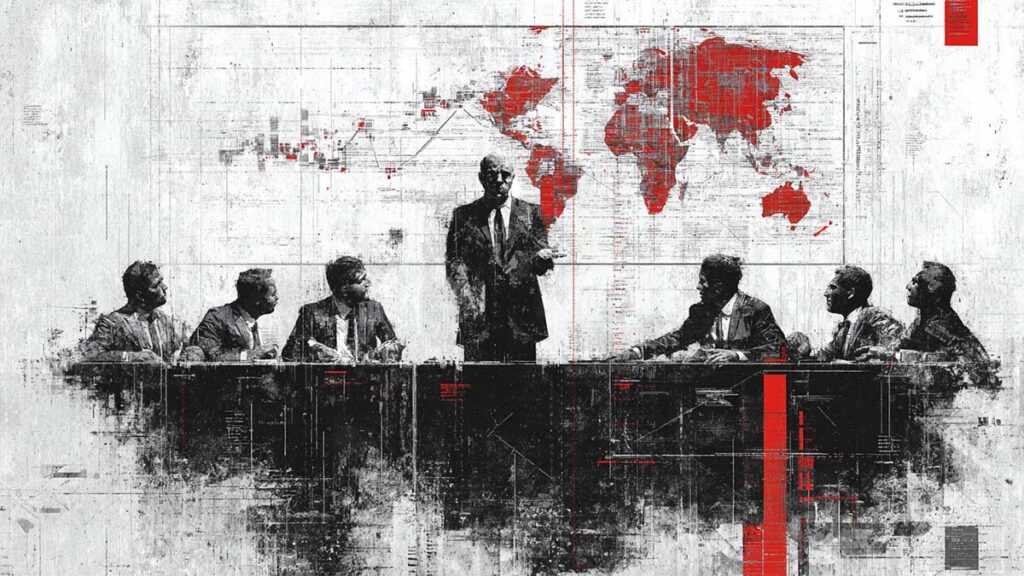
The US Criticism
The contrast between American and German approaches to speech regulation has become a source of significant diplomatic tension, particularly following Vice President JD Vance’s criticism of European speech laws at the Munich Security Conference in February 2025. Vance’s characterization of German hate speech enforcement as “Orwellian” and his argument that “insulting someone is not a crime” reflects a fundamental disagreement about the proper balance between freedom and security in democratic societies.
The American approach to free speech, grounded in the First Amendment’s prohibition on laws “abridging the freedom of speech,” provides much broader protection for controversial and offensive expression than German law. As Nadine Strossen, former president of the American Civil Liberties Union, explains: “The United States First Amendment law… is one of the strongest, I think it’s fair to say it’s the most speech protective national law in the world”. Under American law, even hate speech is generally protected unless it directly incites imminent lawless action.
This philosophical difference has practical implications for transatlantic cooperation on technology regulation and counterterrorism. American technology companies operating in Germany must navigate conflicting legal requirements, with content that is protected speech under US law potentially subject to criminal penalties under German law. The result is a complex compliance environment that may favor larger companies with the resources to manage multiple regulatory regimes while disadvantaged smaller competitors.
The American criticism of German hate speech laws has been amplified by conservative commentators and politicians who view European regulations as a threat to global free speech norms. The reaction to the CBS 60 Minutes segment on German speech policing, which generated widespread outrage among American viewers, demonstrates the depth of this philosophical divide. Comments describing German enforcement as “peak dystopia” and comparing it to “Communist China” reflect the extent to which American observers view German practices as fundamentally incompatible with democratic values.
Strossen argues that the German approach may actually be counterproductive, noting that “the best way to get attention for your message is to hope that somebody protests it and tries to shut it down”. She points to the rise of the AfD party as evidence that hate speech prosecutions may increase rather than decrease support for extremist movements by generating sympathy and attention for their leaders. This “martyrdom effect” suggests that legal restrictions on speech may backfire by enhancing the credibility and appeal of those who are prosecuted.
The extraterritorial effects of German and European regulations have also created tensions with American technology companies and policymakers. The requirement for global platforms to comply with European content standards effectively exports German speech restrictions to users worldwide, including Americans who may be subject to content removal decisions based on foreign legal standards. This regulatory imperialism has generated calls for American retaliation and raised questions about the sovereignty implications of global platform regulation.

Domestic Debates and Tensions
The implementation of German digital regulation has generated intense domestic political debates that reflect broader tensions about the nature of democratic discourse and the appropriate limits of government authority. These debates have been particularly visible in the German Bundestag, where different political parties have articulated fundamentally different visions of how democratic societies should approach the regulation of online expression.
The Christian Democratic Union (CDU) and Christian Social Union (CSU), which were in government when the NetzDG was enacted, have generally defended the law as a necessary response to the proliferation of online hate speech and its contribution to real-world violence. CDU politicians have argued that the law represents a balanced approach that protects both free expression and human dignity, and that criticism of over-blocking has been exaggerated by opponents of regulation.
The Social Democratic Party (SPD), which has been part of various coalition governments during the implementation period, has taken a more nuanced position that acknowledges both the benefits and limitations of the current approach. SPD politicians have generally supported the principle of platform regulation while calling for improvements in implementation and greater attention to procedural safeguards.
The Free Democratic Party (FDP) has been among the most vocal critics of German digital regulation, arguing that it represents an unacceptable restriction on free expression and an inappropriate delegation of government authority to private companies. FDP politicians have called for significant reforms to the current system, including longer deadlines for content removal and stronger protections for satirical and political expression.
The Left Party (Die Linke) has taken a complex position that supports the goal of combating hate speech while expressing concerns about the privatization of censorship and the potential for mission creep in government regulation of online expression. Left Party politicians have called for greater democratic oversight of platform content moderation and more robust protections for political dissent.
The Alternative for Germany (AfD), which has been a frequent target of hate speech enforcement actions, has been the most vocal opponent of German digital regulation. AfD politicians have argued that the laws are being used to suppress legitimate political opposition and that they represent a fundamental threat to democratic discourse. However, the party’s criticism has been complicated by its own history of promoting content that violates German hate speech laws.
One of the most contentious aspects of domestic debates about German digital regulation has been its intersection with academic freedom and university governance. Several high-profile incidents have raised questions about whether the country’s approach to hate speech regulation is creating a chilling effect on scholarly discourse and academic inquiry.
The Bundestag held a current affairs debate in June 2024 specifically focused on freedom of speech at universities, reflecting growing concerns about the state of academic discourse in German higher education. The debate was prompted by several incidents where university events were disrupted or canceled due to concerns about speakers’ views on controversial topics, particularly related to Israel-Palestine issues, transgender rights, and immigration policy.
These incidents have highlighted the complex relationship between legal hate speech restrictions and academic freedom principles. While universities have traditionally enjoyed significant autonomy in determining the boundaries of acceptable academic discourse, the implementation of hate speech laws has created new pressures and uncertainties about what kinds of expression are permissible in academic contexts.
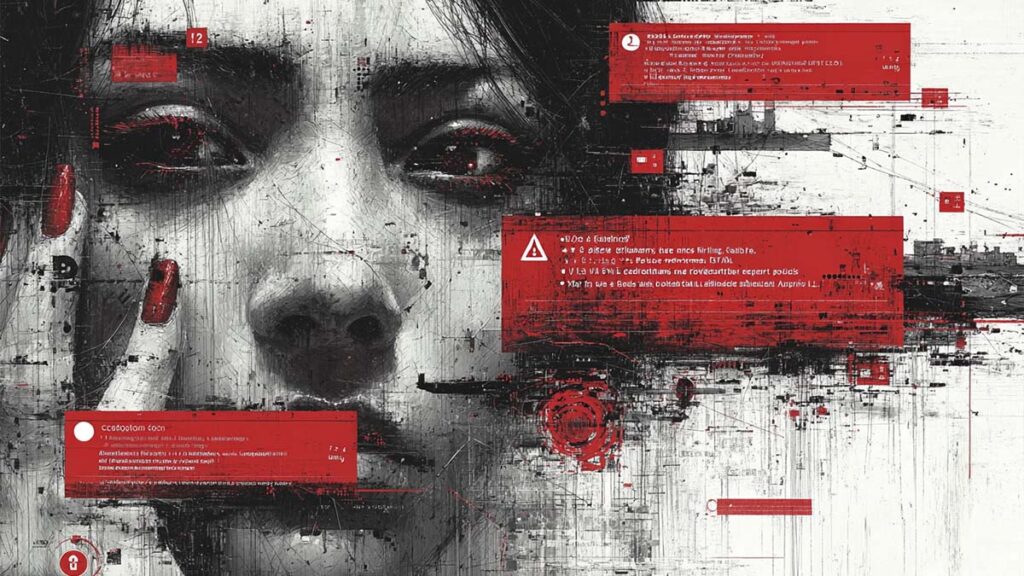
The controversy has been particularly acute around issues related to antisemitism and criticism of Israeli policy. The German Bundestag’s resolution on antisemitism, while not legally binding, has created additional pressure on universities to restrict certain forms of political expression that might be interpreted as antisemitic. Critics argue that this has led to the suppression of legitimate criticism of Israeli government policies, while supporters contend that it is necessary to protect Jewish students and faculty from harassment and intimidation.
These debates reflect broader tensions in German society about the relationship between historical memory, contemporary politics, and free expression. Germany’s special responsibility for the Holocaust creates unique sensitivities around antisemitism that do not exist in other democratic societies, but these sensitivities must be balanced against principles of academic freedom and open inquiry.

Enforcement Challenges
The enforcement of German digital regulation has exposed significant challenges in moderating content at the scale and speed characteristic of today’s online platforms. Each day, millions of posts appear on social media in Germany, creating an enforcement burden that far exceeds anything traditional legal systems were designed to handle. Platforms like Facebook, YouTube, and Twitter report tens of thousands of complaints within just a few months, highlighting the inadequacy of traditional legal tools such as case-by-case adjudication and individual prosecutions in addressing online speech.
To cope with this massive volume, platforms have turned to automated content moderation systems powered by artificial intelligence. These systems are capable of scanning and processing millions of pieces of content daily, flagging potentially illegal material for review or removal. Yet, this technological solution introduces a new set of problems. Automated systems often fail to grasp contextual nuances essential for interpreting hate speech, satire, and political commentary. They cannot reliably distinguish between prohibited content and lawful expression, as demonstrated in the Titanic magazine case, where Twitter’s system misclassified satirical speech as hate speech. These errors not only undermine freedom of expression but also reveal the limits of relying on automation in regulating speech.
Moreover, the sheer volume of decisions required has shifted responsibility for regulating speech from public institutions to private companies. Platforms now act as de facto regulators, interpreting and enforcing laws without the procedural safeguards of judicial oversight. This “privatization of speech regulation” raises serious concerns about transparency, consistency, and democratic accountability. When platforms remove content under German law, they effectively make legal judgments using internal guidelines rather than formal legal standards.
Complicating matters further is the cultural translation problem. German hate speech law is shaped by specific historical and constitutional experiences, emphasizing principles like human dignity and militant democracy. These values are deeply rooted in Germany’s legal and political culture and are not easily translatable across borders. Yet, global platforms must enforce these norms using multinational workforces and systems. Moderators may lack fluency in the German language or an understanding of its political and cultural context. Even with efforts to train moderators and hire native German speakers, the scale of moderation makes it impossible to ensure a culturally competent review of all content. This mismatch results in misapplication of legal standards and contributes to inconsistent enforcement.
The global nature of platforms further complicates compliance. Content decisions about German users are often made by teams located in other countries, under policies and systems developed far from the legal and cultural context in which the content originated. This jurisdictional disconnect presents additional challenges for ensuring accountability and respecting user rights.
Automation has also introduced a significant gap in appeals and due process. Although both the German Network Enforcement Act (NetzDG) and the EU Digital Services Act (DSA) mandate appeal mechanisms, these are typically internal procedures managed by the platforms themselves. Users seeking redress must navigate opaque and often limited systems, with little resemblance to traditional legal processes. The DSA attempts to improve this by establishing independent dispute resolution bodies, but these mechanisms are still in development, and their effectiveness remains uncertain.
Content moderation decisions can significantly impact users’ ability to engage in public discourse. The removal of posts or suspension of accounts can limit free expression and democratic participation, particularly when users have no meaningful way to contest these decisions. This issue is further exacerbated for users whose content is judged under foreign systems or reviewed by teams unfamiliar with local laws and contexts.
Despite major investments in AI and moderation technologies, these tools remain fundamentally limited in their ability to navigate the complex social, cultural, and legal dimensions of speech. They can efficiently detect clear-cut cases of illegal content, but struggle with borderline or context-dependent cases that require human judgment. As these systems grow more complex, their decision-making processes become increasingly opaque—a “black box” problem that undermines oversight and erodes trust.
Furthermore, not all users are equally affected. Those writing in widely spoken languages benefit from better-developed moderation systems, while users of less common languages face less accurate and consistent enforcement. Knowledge of platform rules and appeal procedures also creates disparities, privileging more experienced users in defending their rights.

Digital Dilemma
We face a deeply troubling paradox at the core of German digital regulation: the very tools that claim to address online harms most effectively are, in fact, the most dangerous from the standpoint of democratic legitimacy and accountability. By handing over sweeping powers over public discourse to private tech giants, German authorities have created a new regime of governance that undermines the foundations of democracy.
While German officials boast about reductions in hate speech and other forms of prohibited content, these so-called successes come at an unacceptable price. The threat of draconian fines has forced platforms to pour billions into opaque, unaccountable content moderation systems. The much-touted transparency reports do little to reassure citizens, as they simply reveal the extent to which private companies now police speech according to vague and ever-shifting guidelines, rather than clear legal standards.
Crucially, the German system has eroded traditional safeguards and mechanisms of democratic oversight. Decisions about what constitutes hate speech, incitement, or other illegal content are no longer made by independent judges in open court, but by anonymous employees of global corporations, following secretive internal rules. Citizens whose speech is censored or whose accounts are terminated find themselves with little or no recourse. They cannot appeal to a democratically accountable authority, nor can they hold the real decision-makers to account through elections or public debate.
This abdication of responsibility by German authorities has created a glaring “democratic deficit” in digital governance. The power to decide what may be said in the digital public square has been outsourced to private actors, often located in other countries and operating beyond the reach of German law or democratic scrutiny. This tangled web of cross-border moderation and opaque procedures leaves citizens powerless and undermines the rule of law.
Attempts by the German government to paper over these problems—such as the so-called trusted flagger system, increased transparency requirements, or citizen complaint mechanisms—are little more than window dressing. They do not address the fundamental issue: the surrender of democratic control over public discourse to unaccountable corporate bureaucracies. The German experience is a cautionary tale, demonstrating that the pursuit of digital order at any cost threatens the very democratic values it purports to defend.


